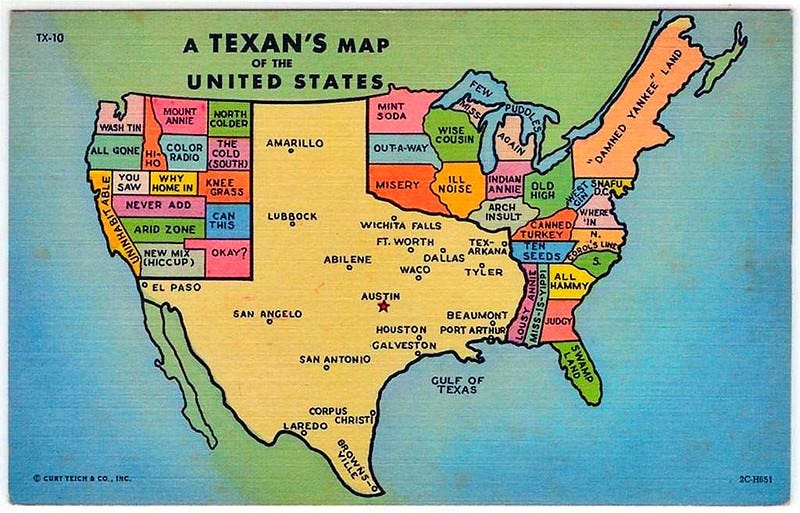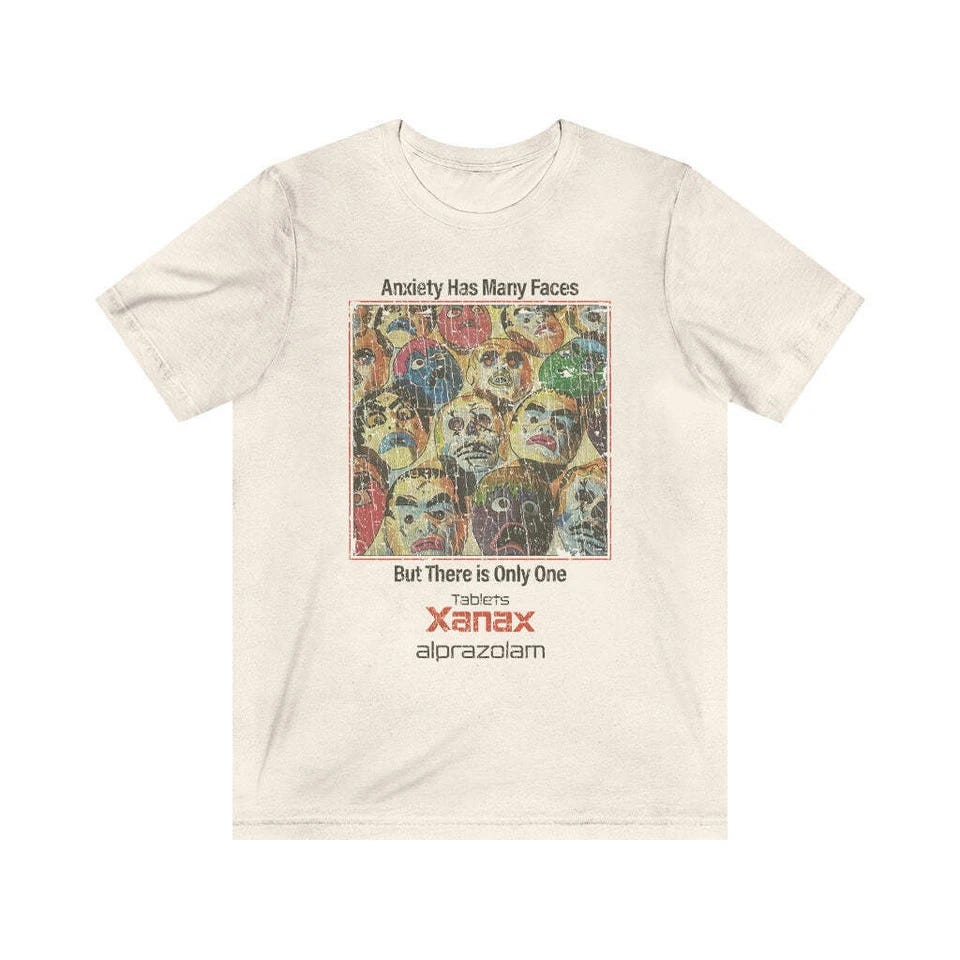
I once had a beloved family doctor. Tall and wiry-framed, Dr. Sapp handled all of my military family’s medical needs while we were stationed in Mobile, Alabama. He was gentle and unabashed, a disposition that put me at ease with even my most embarrassing and intimate problems as a teen—and I had many. If I trusted Dr. Sapp because of his unbotheredness, my parents trusted him because he was a veteran. He spoke of his days in the United States Air Force Medical Corps with fondness, fueling my desire for adventure—or maybe even to enlist myself one day.
There was one thing Dr. Sapp couldn’t help me with: my declining mental health. By the time I saw him about it—the summer after I graduated from high school—I hadn’t left my parents’ couch in weeks. I couldn’t breathe without counting my own breaths. I frequently felt like I was on the brink of dying. Over several months, what began as untreated panic attacks transformed into full-blown psychosis. Dr. Sapp couldn’t treat me, but he referred me to a psychiatrist and made sure they could fit me in the very next day.
I’ve been thinking a lot about Dr. Sapp as the Senate is on the brink of passing (update: has just passed) Trump’s One Big Beautiful Bill Act, which—among other things, like divesting in clean energy, tightening student loan forgiveness, and dramatically increasing funding for deportations—would reduce funding for Medicaid by hundreds of billions of dollars. I’ve been thinking about Dr. Sapp because he was the last doctor I saw before my decade-long absence from coverage, triggered by my move to a state which denied the Affordable Care Act’s Medicaid expansion—and which has some of the country’s most expensive healthcare costs. That state is Texas, and I believe it’s a hint at what’s to come. In many ways, Texas is already indicative of healthcare’s future. This is one in which the healthcare needs of the poor are largely met by for-profit ventures who are testing drugs that will largely benefit the richest Americans.1 This might sound like dystopian fanfiction, but buckle in, cowboys, and I’ll show you that it’s not.

I lost Dr. Sapp on my twenty-first birthday, along with coverage from my parents’ insurance. The Affordable Care Act’s healthcare extension didn’t apply to most military dependents. But for a couple years, I didn’t need it. I’d moved to Washington for college, and took classes part-time until I established residency. Without a doctor, my mental health didn’t get better, and neither did my panic attacks. I struggled to keep up with school, and couldn’t hold down a job. That is, until I found Medicaid, SNAP benefits, and a third government program: the Post 9/11 GI Bill, which had just been approved for transfer to veterans' children. (This was a big deal to my father, who’d always wanted to go to school.) It took me three government programs to get through college, and I’m certain I wouldn’t have otherwise.2
If only I knew how good I had it.
When I decided to move to Texas after college, I didn’t figure healthcare into my plans, because I figured that the Affordable Care Act’s Medicaid expansion would eventually be honored in all 50 states. I never expected that it would take me ten years before I could see a regular doctor again. But for the nearly ten years I lived in a state that denied Medicaid expansion, almost every procedure I needed was a gamble.
I always had a low-paying job, but made too much to meet the strict Texas Medicaid requirements. Most of my friends and I, who worked in restaurants and local bookstores, as dishwashers and drive-in servers and painters, simply couldn’t afford private insurance. Instead, we shared healthcare hacks like survival tips. Urban legends disguised as medical advice were shared over cigarettes and cheap beer, in dive bars and around backyard bonfires, and untreated, near-death ailments were earned like badges of honor. We all knew that if it got bad enough, there was always the E.R. But there were rules to that, too. You were never to bring your I.D. to the E.R. and always create an alias beforehand—something to jot down when you signed in. For most of us, strength was self-reliance. This was a Southern ideal we were raised with, and one we unknowingly glorified: the ability to figure it out on your own, no matter the cost.
Clinical trials don’t treat you—they just tell you what’s wrong. In a state that denied Medicaid expansion, they were the only consistent healthcare I had.
I first heard about the healthcare benefits of clinical trials when my friend needed her wisdom teeth removed. This friend didn’t have dental insurance—none of us did, I don’t think—and had heard, through a friend of hers, that a local company was taking volunteers for a wisdom teeth extraction study. Instead of paying the $1000 out-of-pocket fee common for an extraction, the company paid volunteers a small sum to undergo the procedure. The catch: the facility was testing novel painkillers versus a placebo. My friend cursed from the pain for days while waiting for the surgery, and then when it was done, she howled in pain again—she’d gotten the placebo. For a couple days, my friend begged the study doctors for relief. Eventually, they prescribed her the standard meds.
I first participated in clinical trials around Texas to earn extra money to travel. But when I became uninsured, these trials overnight became a flagging system for potential health concerns. By testing drugs that could potentially make me sick, I awarded myself facetime with a doctor. I hoped, at least, that if I had a problem acute enough, the recruiters, the nurses, the study doctors—someone—would tell me. Rather than at a sexual health clinic, I got tested for HIV and hepatitis during screenings. (Sometimes, when I was paranoid about exposure, I would screen for a study just to be safe.) Instead of a PCP, I received rote physicals from the study doctor to qualify for clinical trials. Instead of blood tests, I gave regular blood samples during clinical trials. Instead of seeing the dentist, I got treated by dental students, or drove down to Mexico. But my ersatz version of healthcare had no incidentals. There was no next step.
In short: Instead of standard care, I became a detective in my own healthcare mystery novel. After being dismissed from a clinical trial screening for admitting to a heart murmur, in subsequent screenings I kept quiet and risked my luck. Like the insuree who lies about a preexisting condition, my white lies had an ulterior motive beyond finance: healthcare access. During ECG scans, I paid special attention, learning terms like bradycardia and arrhythmia from the clinical nurses. I looked forward to rote physicals, so that doctors could check my heart. I figured that the closer I was to a doctor, the better off I’d be if anything got worse. Getting a “pass” was a peace of mind. My own bill of health.
It was the only thing I could do to assuage my mental health, which, once again without adequate care, didn’t get better. In the height of a panic attack, I sometimes drove around the emergency room of my local E.R., or parked in the parking lot, until my body exhausted from the hell that had overcome me, knowing that I couldn’t afford the medical bill. I trained my eye on the door handle of my old truck, willing that if I finally lost consciousness, or took my last breath, my final act would be to open the door and simply fall out so that it’d be easier for someone to discover me.
Once, I received a call after a screening informing me that I was banned for failing a skin test for tuberculosis. (I’ve told this story before.) Twenty-four and doctorless, I freaked, manically surveying my extended circle of friends until one friend of a friend recommended an aging hippie doctor who accepted sliding-scale cash payments that still weren’t cheap. I didn’t have money for a doctor—I was screening for a clinical trial—but I went anyway. For $150 (this was a lot to me), this doctor gave me a chest x-ray, told me there was no evidence of TB in my lungs, and sent me on my way, no wiser than I was when I went in.
The sporadic doctors I did see—nonprofit providers that served low-income, uninsured patients—were always temporary. I never knew their names. When I asked them for anti-anxiety medicine, they almost always said no. I remember begging one doctor in particular who gave in, prescribing me twelve pills of Xanax, which I held onto like gold nuggets, taking them bit by bit until they were done. Unlike Dr. Sapp, these doctors didn’t know me. And I don’t blame them. I was a statistic. Benzos are addictive and dangerous. They were just doing their job. I knew, however, that if I’d had a Dr. Sapp—a doctor who knew me—I could have convinced them I was there for the right reasons.
My friends and I believed that we could bootstrap ourselves into healthcare. This worldview was one that we inherited, informed by the Reaganite idea that “choice” was advocacy. As I wrote in an earlier post:
In The Social Transformation of American Medicine, historian Paul Starr’s magnum opus of healthcare in the United States, Starr tracks how, starting in the Reagan years, healthcare plans became more varied, while requiring more buy-in from the consumer. EPO, HMO, POS, and PPO plans each offered unique perks. (Even if you always had to sacrifice something else.) “Choosing” your plan was a kind of advocacy: your specialized path to healthcare. As health insurance costs shifted from employers to workers in the early 2000s, leaving many underinsured, our very terms changed, reflecting this new way of looking at health, one I’m not sure we’ve moved past: Primary Care Physicians became “patient advocates.” Patients who advocated for themselves became “empowered.” (Human research subjects, I would say, became “entrepreneurs.”)
This held, of course, until it didn’t. One friend, the most stoic of us all, nearly went into kidney failure before dragging herself to the emergency room. She lost weeks of pay from her job, and soon the medical bills started piling up. A month of full-time pay wasn’t even enough to pay them. These bills ruined her credit, but somehow, she was still lucky.

It’s not an understatement to say that my life changed when I could finally afford healthcare. This happened when I moved to Louisiana, a Medicaid expansion state. Immediately, there were plans on Marketplace I could afford. And after a couple of years of regular visits to a doctor and a psychiatrist, I finally got my mental health on track in my thirties. This involved me taking daily medications to treat my anxiety, a move that made me healthier, but contraindicated with my life as a lab rat. Through proper care, I also discovered I did have latent tuberculosis—and treated it. For the first time in years, I was no longer a healthy subject. Instead, I was a patient.
In the United States and abroad, from the One Big Beautiful Bill Act to cuts to PEPFAR, which provides life-saving medications to treat and prevent HIV/AIDS to millions of people in developing nations, subsidized healthcare is under attack, led by conservative think tanks like the Foundation for Government Accountability, who are on the brink of their biggest win. The passing of the One Big Beautiful Bill Act in the House of Representatives would mean over 17 million Americans—including, probably, me—will lose Medicaid benefits, signaling a return “to the same percentage of uninsured before Obamacare,” according to Senator Mark R. Warner of Virginia. For me, this will mean scrambling to figure out how to continue to fill my prescriptions. But it may also mean returning to clinical trials to receive the kinds of treatment—from medicine, to surgeries, to preventative care—I can’t get on my own.
States like Texas that denied the Medicaid expansion have some of the most expensive healthcare costs—and they also have some of the most “healthy” clinical trials. It is this healthcare, a basic human right, that separates patients from subjects—and coercion from consent. Without proper healthcare, humans give up the sovereignty needed to give the full consent that informed consent requires. And without proper healthcare, humans turn to experimental therapies. When healthcare gets cut on a scale like the One Big Beautiful Bill Act promises, I don’t just see a healthcare tragedy. I see a proliferation of human guinea pigs met by a surge in venture capitalist outlets searching for cheap human subjects.
This might seem like a big leap. But you can already see the change in red states like Montana, which recently passed legislation allowing for clinics to perform experimental (that is: non-FDA-approved) treatments in their state, and in the enthusiasm with which RFK Jr. speaks about alternative treatments.3 I, for one, am not opposed in principle to alternative or experimental treatments. But I am opposed to their proliferation in a country that can’t take care of its sick.
Instead of strengthening communities like officials claim, tightening healthcare will make a sicker, not a healthier, world. It will also strengthen RFK Jr.'s alleged sworn enemy: Big Pharma. Not only will pharma conglomerates have more power to dictate prices without state intervention, they’ll also have more bodies on which to test novel drugs at cheaper rates. The millions of poor people who participate in clinical trials already receive this ersatz healthcare—and, for many, it’s the only healthcare they have. As healthcare gets chopped, private equity is set to benefit from a great deal more E.R. visits. All the while, Big Pharma and venture capitalists will inherit a world of desperate people, eager to be lab rats if it means healing.

As always, thanks for reading and thinking with me.
Until next time,
—Cory the Rat
Or, better said, the Americans with the best healthcare.
I used to be ashamed of this fact, because I worried that I was “taking advantage” of government programs—that they were for people worse off than me. But that was the product of my raising talking. The fact is, I was in a place where I needed assistance. Medicaid, SNAP, and the GI Bill gave me the bare minimum to survive while I was in school, and made it so I didn’t need a full-time job while doing so. Many people have to work full-time while they’re in school, and I commend those who haven’t had the luxury to not support themselves. But many more, put in the same position, fail. We often hear the stories of those who were able to hold down two jobs and raise two kids, all while getting a degree. (This was my mom’s story—and boy did I hear it while growing up.) As much as I wanted to live up to this expectation, I couldn’t.
Including stem cell treatments, chelating drugs, vitamins and minerals, amino acids, peptides, hyperbaric chambers, and—most recently—psychedelics.





